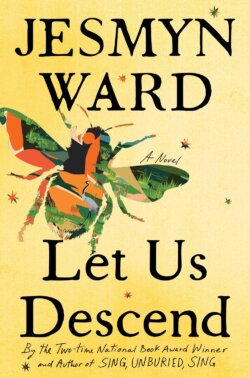Viviana Valentine and the Ticking Clock
New Year’s Eve: a fresh start, a clean slate. 1951, arriving in just a couple of hours, holds a lot of promise for New York City private investigators Tommy Fortuna and Viviana Valentine. Business is going well, and they are on the cusp of getting married. But as the clock ticks toward midnight, they stumble upon a murder in progress in a dark Manhattan alley. Viviana stays with the victim and attempts first aid while Tommy pursues the assailant. Both of their efforts are for naught, other than serving as the jumping-off point for Viviana Valentine and the Ticking Clock, book three in Emily J. Edwards’ critically acclaimed series. This investigation will be both on Tommy and Viviana’s own time and their own dime, as they have no client to bill for their work on the murder of the still-unidentified man. That said, they have a couple of other cases, each baffling in its own right, which will pay the electric bills and the secretary for the time being. The book is set in New York at a time when the electric shaver was new to the market, and the Polaroid camera was just beginning to be recognized as a powerful tool for investigators. Both devices actually play a small role in the story, evidencing the painstaking research that complements Edwards’ period-perfect dialogue and snappy humor.
Murder in Williamstown
Murder in Williamstown is Kerry Greenwood’s 22nd(!) installment in her long-running series featuring freethinking Australian aristocrat Phryne Fisher. (I have done the legwork of looking up the pronunciation of Phryne; it is “Fry-nee,” rhymes with shiny. You’re welcome.) Her latest case has an atmospheric milieu, a well-realized cast of characters and a rollicking plot, to boot. Phryne is something of a libertine, both in terms of her daytime investigative adventures and her amorous nighttime adventures. This time out, she is innocently swept up into the burgeoning opium trade taking place in her home of Melbourne, Australia. While visiting her sweetheart du jour, Phryne discovers the body of a Chinese man who was possibly aligned with a criminal element, and, a short time later, another murder occurs right in front of her eyes. The Chinese community in Melbourne is reluctant to involve the police, fearing anti-Asian prejudice, and the police, for their part, are pretty much okay with that. So it falls to Phryne to sort through the players and to dispense justice as she sees fit, which I must say she does in a more fair and balanced manner than any court of law I could imagine.
★ Edge of the Grave
Robbie Morrison’s debut novel, Edge of the Grave, unfolds in 1932 Glasgow, Scotland. The 1930s were a time of unrest in the industrial port city. The privations of the Great War gave way to boomtown prosperity, but the gap between the aristocrats and the working poor is as great as ever and the nights are ruled by cutthroat street gangs. Detective Inspector Jimmy Dreghorn, onetime bantamweight boxer and World War I soldier, has since advanced through the ranks of the Glasgow police. Despite being Catholic in a largely Protestant organization and despite having to practically stand on tiptoe to meet the minimum height requirement, Jimmy is a scrappy sort of guy, and not disposed toward taking any guff from anyone, regardless of their size. He is pulled off a particularly sickening murder of a young boy to investigate the death of Charles Geddes, a ne’er-do-well high society hanger-on with whose family Dreghorn shares some not entirely pleasant history. For readers who are fans of thrilling, well-choreographed violence, there is plenty to be found here. Nothing egregious by any means, but consider yourselves warned. It’s no surprise that Edge of the Grave won the 2021 Bloody Scotland Debut Prize for Crime Novel of the Year: The writing is first-rate and it is perhaps the best debut novel I have read this year. The catchall term for mystery novels set in Scotland is “Tartan Noir,” by the way. (I imagine it was first used in conjunction with the novels of Ian Rankin and Val McDermid, and then just kind of stuck.) And one thing you can be positively sure about in Tartan Noir is that somebody’s gonna get kilt. Sorry. (Not sorry.)
★ When I’m Dead
Black Harbor, Wisconsin, gets pretty chilly by late October, but the chill brought on by the nighttime murder of a popular teen overshadows almost anything the weather can deliver. Medical examiner Rowan Winthorp knows the girl who was killed; Madison Caldwell was a friend of Rowan’s daughter, Chloe, since primary school. One shudder-inducing detail? Madison’s teeth have been broken out of her jaw and scattered around her body. Rowan was at her daughter’s high school play when she got the call, and had to leave halfway through. Chloe, angry over the abandonment, lashed out with “You’ll love me more when I’m dead,” a statement echoed in the title of Hannah Morrissey’s third Black Harbor mystery, When I’m Dead. The investigation turns up several surprises early on: First off, it appears that Madison was not as well liked as some of the parents believed, but instead was one of the school’s mean girls. Also, there was no love lost between her and Chloe, come to find out. And now in the wake of the murder, Chloe has gone missing. Is she another victim? Or is it something altogether more insidious? Of all the books this month, this one, plot-driven to the max, is the supreme page turner; When I’m Dead is nigh-on impossible to put down.































































